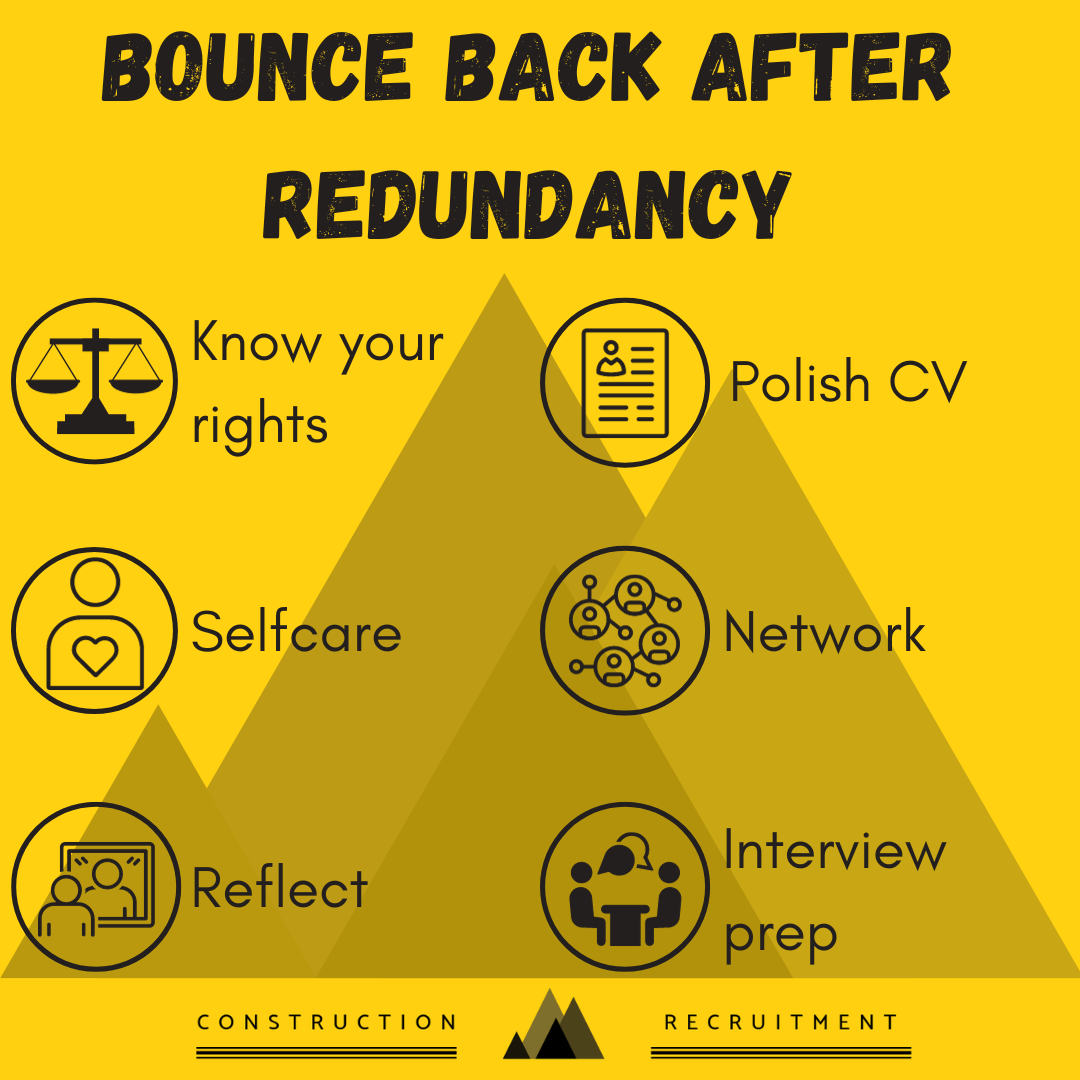
13 Apr 6 Ways to Bounce Back After Redundancy
Redundancy is tough. It knocks your confidence and unexpectedly disrupts your life.
Here are our tips on how to bounce back after redundancy:
- Know your rights
The government website includes information about your rights when facing redundancy. Most importantly, you cannot be unfairly selected for redundancy, for example, due to age, gender, disability or pregnancy. You may also be entitled to redundancy pay; a notice period; a consultation with your employer; the option to move into a different job and/or time off to find a new job. If you’re unsure, you can get advice from the Advisory, Conciliation and Arbitration Service or Citizens Advice.
2. Self-care
Self-care is different for everybody but redundancy is often unexpected and always disruptive. Do whatever you can to be kind to yourself whether that’s talking to friends or relaxing with a movie. Redundancy can also knock your confidence; It’s important to remind yourself that redundancy happens when employers need to reduce their workforce rather than criticising your own performance.
3. Reflect
Now is the perfect time to evaluate your career journey so far and use this to inform your next steps. Ask yourself:
- What did you like about your previous job?
- What did you not like?
- What do you want from a job moving forward?
- What are you willing to settle for in a job until you get to your dream job?
- What are your strengths?
- Where do you need to develop?
4. Polish your CV
When was the last time you looked at your CV? Is it formatted correctly (see our blog post “Looking to IMPROVE your CV? Read this now…”) Are there any achievements from your previous job that you can add including any promotions; the size of the team you managed/worked with; improvements you made to company processes that are still used; problems you solved; areas you have become an expert in and projects you completed early or under-budget (see our blog post “6 Achievements to Include in Your CV”).
5. Network
Networking is so important throughout your professional career, not just when searching for a new job. Utilise any connections you have through family and friends and social media like LinkedIn – people are often happy to help others professionally and there may be an opportunity waiting that you never knew of until it presents itself.
Another invaluable resource is a recruitment service. Recruiters can discuss your career ambitions, find you opportunities that align with your aspirations and prepare you to help you have your best chance of being successful.
6. Prepare your interview technique
Now you know what you want from your next role and you’ve sent your newly polished CV to various companies recommended by your extensive network, you need to prepare for all the interviews you will inevitably be invited to!
Do your research and prepare answers to anticipated questions. Be sure too, to prepare all the logistics such as how long it will take you to get there and what you’ll wear (see our blog post “Nervous for your upcoming interview? Read these TIPS…”).
Don’t forget to prepare questions that you want to ask at the end of the interview so you can be sure the role matches the requirements you spent time reflecting on in step 3 (see our blog post “6 Questions to Ask at the End of an Interview”).
Contact Information:



